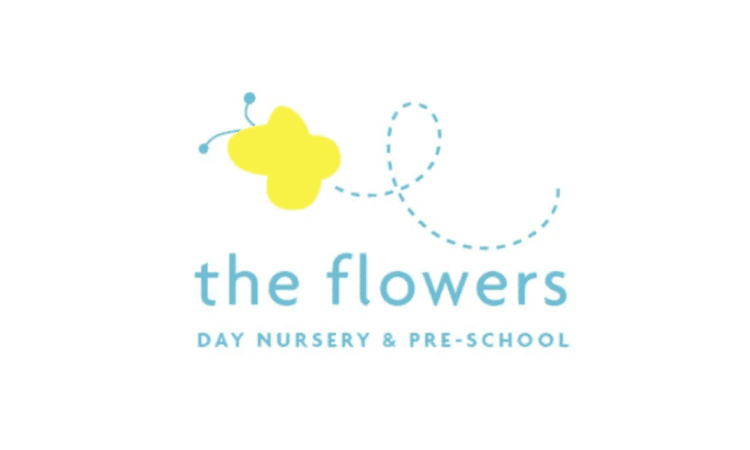A child’s development is a process that begins at birth and continues throughout their entire life.
It involves physical, cognitive, emotional, social, and moral development. Each of these areas is inextricably linked and affects each other. Of Course, a child’s environment plays a significant role in their development. It can provide them with the resources they need to grow and learn, or it can be detrimental to their development.
In continuation of our blog series, we delve deeper into more stages of a child’s development. Here are some of the stages a child goes through between the ages of 3 and 6 years old.
Literacy
Literacy is one of the key developmental areas for children as it helps them develop
communication skills, learn about their world and understand other people’s perspectives. Being literate allows children to access a wide range of information and experiences in books and online, which can help them learn about different topics, cultures and countries. It also enables them to understand instructions better, follow the rules and develop their ideas. Good literacy skills are essential for success at school and later in life. Those who struggle with reading and writing will often find it harder to get good grades, secure employment and progress in their chosen careers.
Why Is Literacy Development Important?
Literacy development is a critical time in a child’s life because it is the foundation of reading and literacy skills. To effectively help children at every stage of their early learning, educators must
understand why language learning is so important.
Here are a few reasons why developing early literacy skills is critical:
-
Children who are confident in their reading abilities struggle less in school and have a more positive attitude toward learning
-
Strong literacy skills enable independent learning and promote consistent growth inside and outside the classroom
-
Their literacy development influences the way students interact and solve problems.
-
Literacy skills are associated with increased cognitive ability
-
Literacy skills also allow social interaction and the ability to learn how to behave in any given situation
Mathematics
Child development in mathematics is vital for success in both school and life in general. The mathematical story begins at birth and continues throughout life. It is a process that involves the acquisition and use of mathematical concepts, skills, and understandings.
There are many different areas of mathematics that children need to develop. These include number sense, operations and algebraic thinking, geometry, measurement, data analysis and probability. Each of these areas builds on each other, so children need to have a strong foundation in all of them.
Number sense is the ability to count accurately, identify numbers, compare quantities, and understand place value. Operations and algebraic thinking involve the ability to solve problems using addition, subtraction, multiplication, and division, as well as understanding algebraic concepts such as equalities and variables.
Geometry is the study of shapes and their properties. Measurement involves understanding units of measure such as length, weight, capacity, time etc. Data analysis and probability is the ability to collect data/information and make predictions based on that data/information.
In a nutshell, child development in mathematics is an essential foundation for success in school and life. Parents can help their children develop mathematical solid skills by focusing on key areas and providing opportunities to explore and experiment. Parents and adults can support a child’s early numeracy learning by using numbers and counting in everyday conversations when driving, cooking, when reading, getting dressed and so much more.
Understanding The World
Understanding the world is among the seven areas of the foundation stage. It is used to help children develop a better understanding of technology, geography, people, and communities. Children can demonstrate this in various ways, including speaking with themselves and their families, observing animal and plant differences, and observing how the world around them differs from place to place. They also learn about the various technologies used worldwide and that each one serves a specific purpose.
Natural Explorers
From the time they are born, children are natural explorers. They are constantly investigating their surroundings and trying to make sense of their world and in turn learning. This is how they learn about the world and how to interact with it.
Children’s understanding of the world becomes more sophisticated as they grow older. They begin understanding things like cause and effect, relationships, and change. Children explore through sight, sound, touch and emotion and all of these things contribute to them learning about the world around them.
Expressive Arts & Design
Expressive arts and design are about using creativity to communicate ideas and feelings. It is a process that begins at birth and continues throughout a child’s lifetime. There are many different skills involved in expressive arts and design.
These skills include communication, imagination, creativity, self-expression, cooperation, and problem-solving. People use expressive arts and design skills daily in tasks such as cooking dinner or decorating a room. Good graphic arts and design skills are essential for success in school and life.
Expressive Arts & Design FAQs
What are expressive arts and design?
Expressive arts and design are a way for children to express themselves through art, music, and other creative outlets.
Why are expressive arts and design essential for child development?
Expressive arts and design are vital for child development because it helps children express themselves, explore their creativity and develop their fine motor skills.
What are some benefits of expressive arts and design?
Some benefits of expressive arts and design include promoting self-expression, encouraging creativity, and improving fine motor skills.
What are some ways to incorporate expressive arts and design into children’s development?
Some ways to incorporate expressive arts and design into child development include providing art supplies, music, and other creative materials for children to use and offering opportunities for them to explore and express their creativity.
In conclusion, expressive arts and design are essential to child development. Expressive arts and design help children to express themselves, explore their creativity, and develop fine motor skills. It is an integral part of child development and should be incorporated into their daily lives.
In Summary
In early childhood and throughout a child’s education, there are seven areas of development and learning that must be considered.
All aspects of learning and development are crucial and intertwined.
We have identified four key areas of education above that are critical for igniting children’s curiosity as well as enthusiasm for learning, as well as for forming relationships as well as thriving throughout their life.
Our next article will go into the next three areas of development and learning.
The Flowers Day Nursery prides itself in the care it provides the children that attend there and the happy and engaging learning environment it creates for each child in every age group.
As your child gets older they can progress through our dedicated age rooms where our qualified and caring team focuses on age-appropriate play and learning following the national curriculum.
All of our age groups within the Flowers focus on the key stages of children’s development and sessions are planned and reviewed around these important milestones and stages.
Flowers Nursery provides professional, outstanding and caring child care in an encouraging and supportive environment where your children can learn, grow and thrive. We provide quality childcare with no hidden charges or extras at our family-oriented daycare nursery.
Whether you have a baby, toddler, pre-school or a school-age child, we would love to speak to you about your childcare. We will discuss their needs, you will meet our team, and have a tour of our nursery. From there we can arrange a trial and settling-in sessions for your child before they officially start with us. This will give you peace of mind they are happy to be with us and them the security they need when first starting a new nursery. Please contact us today on 01792 46 44 45 and we will answer any questions you may have.


You must Register or Login to post a comment